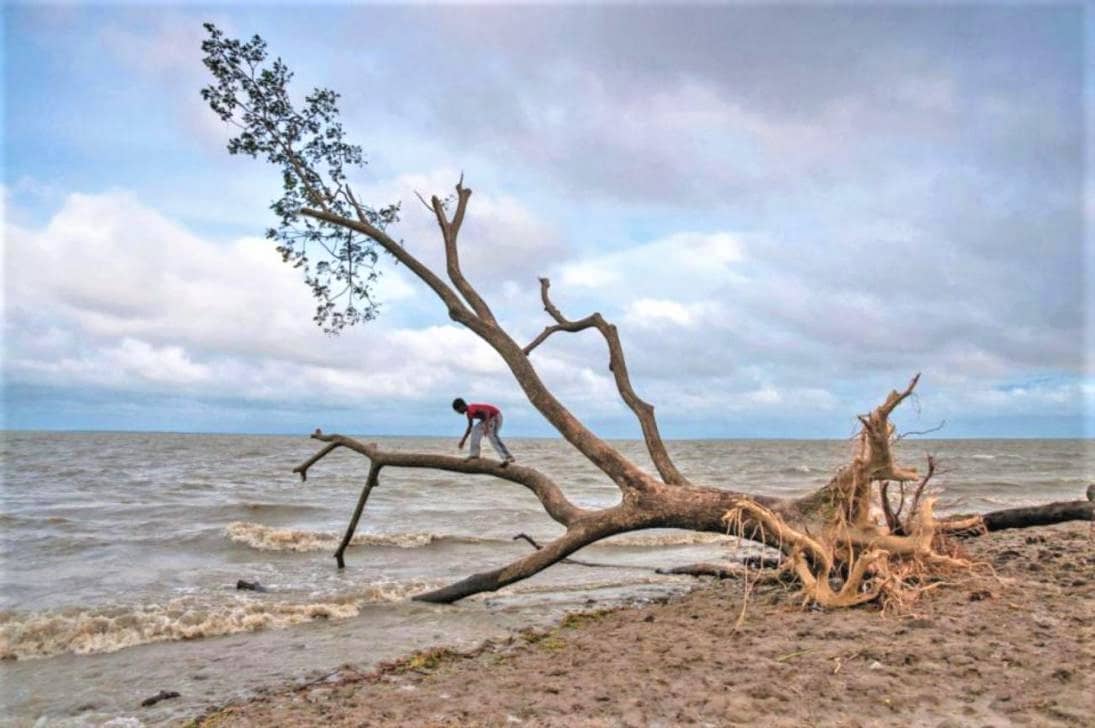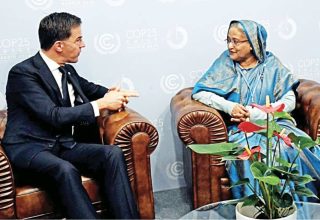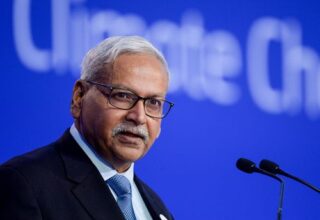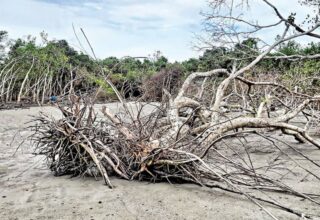
The government of the United Kingdom has had a very cordial relationship with Bangladesh since our independence and the UK’s Department for International Development (DFID) has been a significant bilateral development partner for many years. DFID is currently in the process of designing a new, major five-year programme to support Bangladesh’s efforts to tackle climate change and protect our environment. Already, there has been an effort to build a collaborative research partnership between Bangladeshi and British universities and researchers to turn the research into action on climate change during the next five years.
This discussion started last year, during the London Climate Action Week held by Mayor of London Sadiq Khan in July 2019. During that week, the International Centre for Climate Change and Development (ICCAD) held a meeting at the Royal Geographical Society in London, bringing together academics and researchers from around the UK who had previously carried out research in Bangladesh. While most of their research had been on development and poverty related issues, they had begun to include climate change in recent years. It was revealed that a great deal of excellent research has been done in a significant number of Bangladeshi academic and research institutions as well as with individuals with long standing links to the UK.
However, while there has indeed been quite a lot of research publications, they have not always been taken up by decision-makers. Also, they tended to be pieces of individual research which were not necessarily linked to each other, as each one was funded from a different source with different objectives.
So, we had a discussion about whether we could design a more programmatic approach to funding future research on tackling climate change, along with poverty and development, which would focus more on turning research into decision-making and action. It was also felt that this new form of collaborative research should shift the paradigm from UK assisting Bangladesh to a mutually beneficial relationship, where the UK learned from Bangladesh and vice versa. Since then, Prof David Lewis at the London School of Economics (LSE) has been working with us to design a possible collaborative research programme.
The London Climate Action Week was reduced in days and held online this year from July 1 to 3, and ICCCAD along with LSE organised a webinar on this proposal, attended by Emma Howard-Boyd, head of the UK Environment Agency, Judith Herbertson, head of DFID Bangladesh and Saida Tasneem Muna, Bangladesh High Commissioner to the UK. Prof David Lewis presented the proposal for a paradigm shifting future research programme where the UK benefited as much as Bangladesh and the results could feed into action and also be shared with other countries as a global public good.
In terms of how this could be realised, there was the opportunity to support the new Regional Centre on Adaptation to be set up in Dhaka under the agreement reached last year between Prime Minister Sheikh Hasina and Ban Ki-moon, who heads the Global Centre on Adaptation (GCA) based in Netherlands. As Bangladesh is now the head of the Climate Vulnerable Forum for the coming two years, which will include the COP26 to be held in UK next year, such a programme could enable Bangladesh to become a global leader in adaptation to climate change research and share its knowledge in a South-South as well as South-North relationship. Finally, on the issue of coordinating with the academic and research community in Bangladesh, there is already the consortium of over fifty institutions under the Gobeshona initiative, which has been holding a major annual conference every January for the last six years.
If such a new initiative could be designed by the end of this year, it could be announced at the next annual Gobeshona conference to be held in Dhaka in January 2021. The Gobeshona conference will be followed immediately afterwards by the Global Adaptation Summit, which was originally supposed to have been held in the Netherlands in October 2020 but has been postponed to January 25, 2021 and will now be a rolling 24 hour long event that travels from one anchor event in each geographical zone every few hours, starting from the Pacific and moving westwards with the sun. One such anchor event will be held in Dhaka, possibly including a keynote speech from Prime Minister Sheikh Hasina and Dr Musa of BRAC, who is one of the commissioners in the Global Commission on Adaptation (the origin of the Adaptation Summit).
A collaborative research programme between the UK and Bangladesh has the opportunity to enhance the possibility of young researchers from Bangladesh studying for Masters and PhD in British universities, as well as for British students to come to Bangladesh to study adaptation to climate change. A number of universities in Bangladesh, including my own, already host young researchers from the UK, and we can build a bigger programme by providing scholarships going forward.
Hosting young students from other countries is one of the best ways to build relationships between people of different countries and this proposal is based on the excellent foundation that has been laid by many decades of Bangladeshi students studying in the UK and then continuing to collaborate with their professors in further research. This strong foundation is the basis for undertaking an ambitious new programme of research, and turning it into action to tackle climate change as a global public good for the benefit of all countries around the world.
Originally this article was published on July 08, 2020 at Daily Star. The author Prof. Saleemul Huq is the director of the International Centre for Climate Change and Development (ICCCAD) at the Independent University, Bangladesh (IUB).
Email: saleemul.huq@icccad.net






